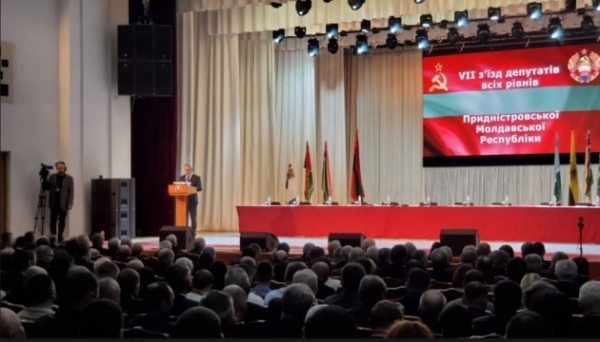Boiling Situation as Moldova’s Transnistria Asks Russia to ‘Protect’ Them
The recent developments in Transnistria, particularly its appeal to Russia for “protection,” have raised concerns about the potential for a significant geopolitical shift in the region. Speculation abounds that Transnistria, a Russian-controlled enclave in Moldova, might be moving towards voting to join Russia, marking the first such referendum since 2006.
The current deployment of Russia’s limited troops in Transnistria may not pose an immediate threat to Ukraine amid the ongoing conflict. However, it could contribute to increased instability in Europe and pose challenges to Moldova’s aspirations of joining the EU.
The shift in narratives within Transnistria in recent months hints at possible external influences. The special congress held on February 28, the seventh in its history, was anticipated to address issues related to customs duties, with suggestions that it might call for a referendum to join Russia or seek recognition of the 2006 referendum results.
Transnistria, also known as Pridnestrovie, emerged as a Moscow-aligned separatist region in Moldova following the collapse of the USSR. The predominantly Russian-speaking region declared independence in 1990, citing concerns about the protection of Russian speakers as Moldova sought closer ties with Romania. Despite maintaining autonomy with Russian support, no UN member state has recognized its independence.
The timing of these developments raises questions, with potential explanations ranging from influencing Putin’s support before Russia’s presidential election in March to Moscow consolidating control over Transnistria before Moldova’s potential EU accession.
While the potential accession of Transnistria to Russia may not pose an immediate risk to Ukraine, it creates a dilemma for Moldova’s EU aspirations and could disrupt regional stability. The limited Russian troop presence in Transnistria makes a direct attack on Ukraine or Moldova unlikely. However, diplomatic and political repercussions could impact Moldova’s progress towards EU integration.
The situation echoes past scenarios in Crimea and Donbass, where appeals for “protection” preceded annexation and military actions. The Institute for the Study of War (ISW) warns of a high-impact event, considering the potential for Russian President Vladimir Putin to declare annexation during his address to the Russian Federal Assembly. The ISW suggests that the most likely course is an inflection in Russian preparations for hybrid warfare against Moldova.
In conclusion, the unfolding events in Transnistria underscore the geopolitical complexities in the region, raising concerns about potential repercussions on regional stability and Moldova’s path to EU integration. The echoes of past patterns and the uncertainty surrounding Russian intentions warrant close monitoring of the situation.




